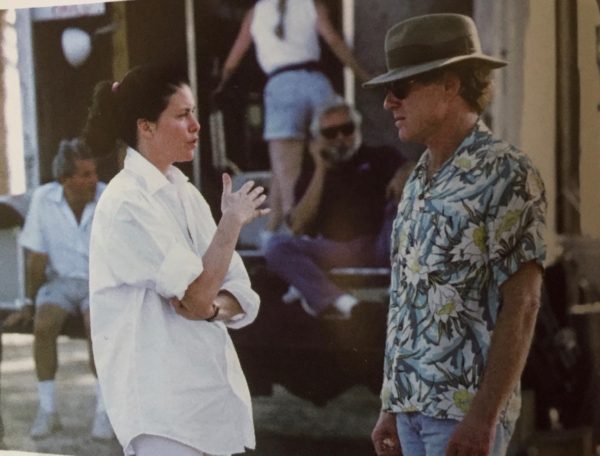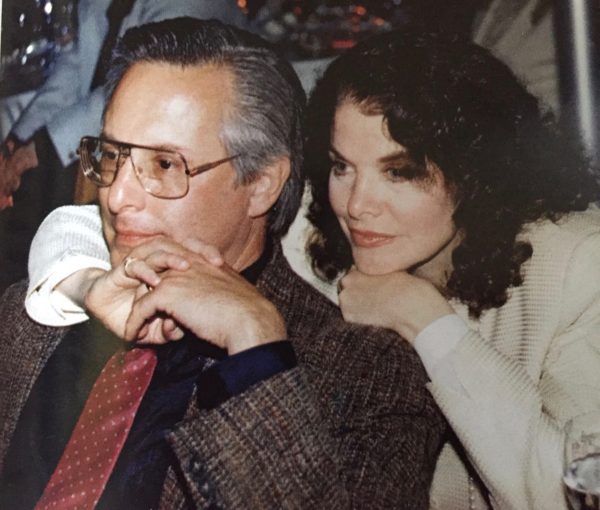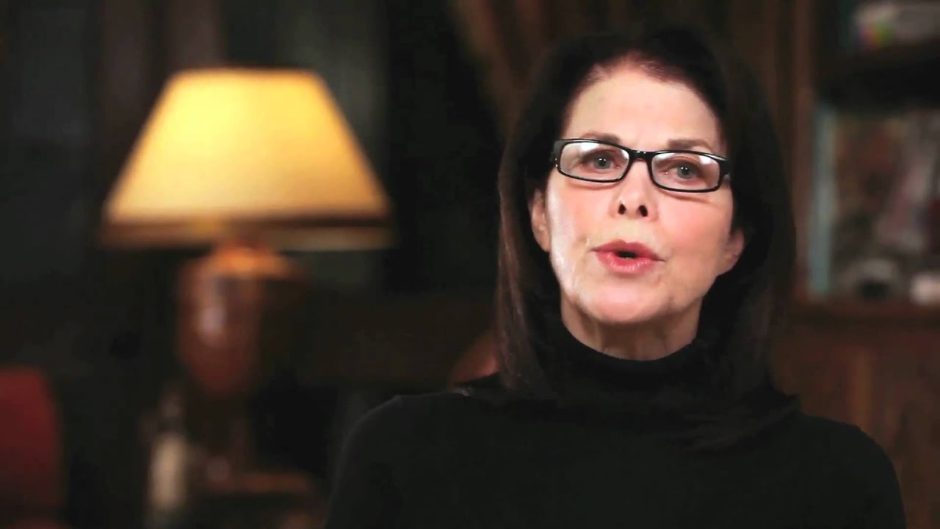Sherry Lansing broke the glass ceiling in Hollywood. The first woman to head a major movie studio, she was president of 20th Century Fox and chair of Paramount Pictures.

As Stephen Galloway writes in the paperback edition of Leading Lady: Sherry Lansing and the Making of a Hollywood Groundbreaker (Three Rivers Press), she came of age during the pre-Harvey Weinstein period, when “women were relegated to being secretaries or starlets, when breasts were fondled, bottoms pinched, and the casting couch was just another station of the cross for any young woman aspiring to be a star.”
The daughter of a Jewish refugee from Nazi Germany, she was part of a “dazzling generation of women” who broke into what had been a boys’ club Hollywood. Lansing’s peers included Dawn Steel, who would become president of Columbia Pictures, and Laura Ziskin, the producer of the Spider-Man series, one of the most successful franchises of its kind.
“These women were impressive by any standard, yet none had Lansing’s particular blends of artistry and authority, of people skills and commercial savvy,” says Galloway, a journalist based in Los Angeles.

Lansing’s mother, Margot Heimann, was born and raised in Mainz, Germany. In May 1938, six months before the Kristallnacht pogroms, broke out she boarded an American ship bound for New York City, leaving her parents, Fritz and Hilda, behind in Mainz. She remained single until she met David Duhl, a Chicagoan 10 years her senior. On July 31, 1944, she gave birth to Sherry Lee Duhl, who changed her name to Sherry Lansing after her mother remarried and wed Norton Lansing, a salesman and furniture maker.
Lansing met her first husband, Michael Brownstein, a medical student, at a fraternity house party in Chicago. The young couple settled in Los Angeles, where Lansing worked as a math and English teacher in the depressed South Central neighborhood. While teaching, she sought employment as a model and actress. Along with other aspiring actresses, she endured dispiriting cattle calls and sexual advances.
Having appeared in several commercials, she landed minor parts on television shows and won roles in Loving, a movie directed by Irvin Kershner, and in Rio Lobo, a Western starring John Wayne and directed by Howard Hawks. Variety described her as a “chic sexpot,” but in fact, Lansing hated the pretense of acting. Meanwhile, she and her husband drifted apart, divorcing in 1970.
Lansing’s career as an actress was short-lived, but much to her fortune, the producer of Loving, Ray Wagner, offered her a job as a screenplay reader, believing she possessed a rare combination of analytic and intuitive intelligence. “Lansing had to work around the clock to make a fraction of her pay as an actress, but she had none of the anxiety that accompanied it,” says Galloway.

In 1975, she graduated to executive story editor at MGM. Two years later, as the protege of Hollywood producer Dan Melnick, she was named vice-president of production at Columbia Pictures. Her first film, The China Syndrome, starring Jane Fonda and Michael Douglas, was followed by Kramer vs. Kramer, starring Dustin Hoffman and Meryl Streep, which won an Academy Award for best picture in 1980. In the same year, she catapulted to the presidency of 20th Century Fox, where she supervised, among other movies, the mega hit Fatal Attraction.
According to Galloway, Lansing’s hands-on management style involved rapid-fire calls, multiple meetings and an immersive involvement in every project, “from the first draft of a script to every aspect of a movie’s marketing and release.”

Lansing’s next husband, William Friedkin, directed The French Connection and The Exorcist. Early in her tenure at Paramount, Lansing told Friedkin she had just read “the most beautiful script” ever to land on her desk. Forrest Gump had been developed by a rival studio that had lost faith in the material, but she was enthralled by it. The winner of six Academy Awards, Forrest Gump became one of the highest-grossing films in history.
She was at the peak of her game with the release of Titanic, which grossed $2.1 billion worldwide. As Galloway adds, she had her share of flops, too, notably The Four Feathers and K-19.

As he suggests, Lansing grew disillusioned by the increasingly pressing demands of contract negotiations and corporate bureaucracy, leaving her far less time for what she liked best, creative encounters.
After she left the industry, she focused on building her foundation, which concentrated on education, cancer research and the aging workforce.
In closing, Galloway pays tribute to the mixture of strength, suppleness, resiliency and willpower that enabled Lansing to reach the top. “She paved the way for the tsunami of women who now fill the executive ranks of our industry,” he quotes the actress Meryl Streep as saying. “She was the pioneer who made ‘female head of studio’ no longer an oxymoron by virtue of her smarts, her determination, her capacity for tough decisions, and not insignificantly, her charm, her calm and her kindness.”
